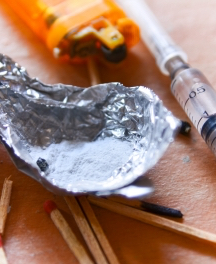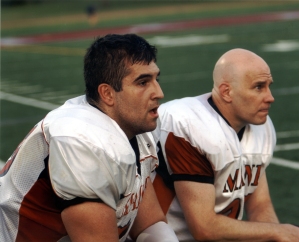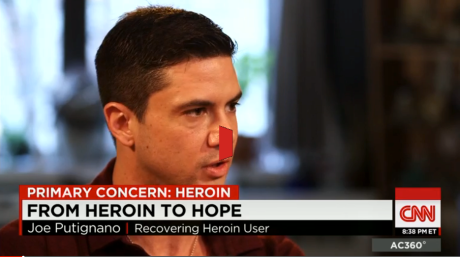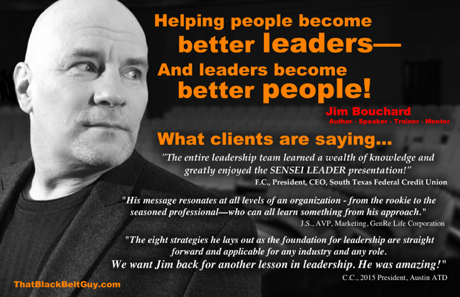Personal Mastery is about self-control and self-determination. There is nothing more destructive to your control of your own life than addiction. I know this from personal experience. If you’re struggling, or know someone who is, I hope this helps…
 There are ultimately only 3 options for a drug addict:
There are ultimately only 3 options for a drug addict:
#1 Quit
#2 Jail
#3 Death
I’ve been saying the same thing for years. I’ve been accused of being uncaring, insensitive and harsh. I don’t give a damn. I know what I’m talking about.
The last time I did drugs was in 2006. That information would surprise many of the people who know me. In my keynote speeches, I talk about quitting sometime around 1982––almost 35 years ago.
10 years ago I was well beyond my addiction. I was running a successful martial arts program and was considered a community leader. I talked often to young people about the dangers of drugs and my life was committed to providing an alternative through martial arts. No one would ever suspect me of a relapse at this point in my life.
I didn’t fall off the wagon––I broke my leg.
I’ll get back to that story in a minute. First I want to tell you about the inspiration for this post.
This CNN headline caught my eye: “Lethal strain of heroin strikes Western Massachusetts.” My own state of Maine has been dealing with an epidemic of heroin abuse for years. These stories strike particularly close to my heart because I mentor kids in juvenile detention. Many of these kids are drug addicts.
One of the most promising kids I worked with was killed about a year ago. He was a severe heroin addict. I maintained contact with him after his release and really thought he was going to make it. Sadly, a pattern started where his calls were less frequent and the conversation strained. Finally he admitted he was using again––but there was still hope.
That hope ended when I got a terrible call. He had been killed––shot twice in the chest and dumped in a river. I knew instantly and without doubt that his murder was drug related.
Back to the CNN story––it contained a video interview with Joe Putignano. Joe had been a promising world class gymnast. He was positioned for a shot at the Olympics. After a routine dental procedure, he instead became a drug addict.
If you’ve never been there, it might seem ridiculous that a simple prescription pain killer can cause you to become a junky.
Most people appreciate the benefits of these drugs without ruining their lives. They use them for the pain, finish the course and that’s the end of it. If, however, your body and mind are susceptible to addiction, this can be the start of the self-destructive spiral.
Now I’m going to ask you to bear with me.
I’m going to edit the story for time, but I want to share my experience with you before I talk about the 3 options again. I want you to understand that I’m not just another well-intended do-gooder preaching at you with no experience. I know what I’m talking about because I’ve been there.
My first trouble with narcotics started the same as Joe’s.
After a root canal, my dentist prescribed Percocet. The next two times I went to the dentist, I stored the pills until I needed them––not for the pain, but to get high.
I did not become a heroin addict. Believe me, I tried my share of various narcotics, particularly prescription drugs. I developed a particular fondness for speed, which I would usually obtain in capsule form, then break open and snort. Quaaludes and other “downers” provided the balancing effect. All of this just to keep the party going as my marijuana habit escalated to 6 to 8 bhang hits a day.
I was high all the time. But––I wasn’t a junky. At least that’s what I told myself.
You see, I didn’t do needles and I never snorted a single line of coke. To my mind, that’s what junkies did. No smack, no coke––no junky.
One day a friend who was always part of the party, and in fact who was my main source of pot accused me of being a true waste product. I said, “You’re just as bad as I am.”
“No,” he said, “I’m a smoker. You’re a STONER!”
But, as I said, I never did heroin. Thankfully.
Putignano was not as lucky.
He eventually quit. Then fell off the wagon. Then quit again. This is not unusual––especially with heroin, it usually takes several attempts to be successful. He finally got clean for 8 years and worked his way back into gymnastics as a featured performer in Cirque Du Soleil.
After a shoulder operation and despite warnings on his medical record, a nurse gave him a powerful narcotic pain killer. He felt the surge again––thankfully, he stopped it before it could take hold.
The same thing happened to me after I broke my leg.
 I should say I shattered my leg. In an attempt to regain lost time from my youth, I started playing semi-pro football at age 44. My injury happened on the field––very similar to the infamous Joe Theismann injury.
I should say I shattered my leg. In an attempt to regain lost time from my youth, I started playing semi-pro football at age 44. My injury happened on the field––very similar to the infamous Joe Theismann injury.
I’m going to keep a very long story very short. The short story is that the surgeon could not operate on my leg until it was stabilized. Until then, they had to manage the pain. The hospital started me on Morphine.
Suffice it to say that their administration of the drug was less than cautious. I found myself on a pendulum alternating between severe pain and tripping my brains out.
As I said, this is a long story and I’m leaving out a lot of detail. The end result, however, was that I was transferred to another hospital and to the care of a surgeon who specialized in sports injuries. By the time I was transferred, I was hallucinating. I felt as if I could just walk through my hospital window and fly across the city.
Thankfully, the second hospital recognized the problem and got me on a routine that controlled my pain without the hallucinatory side effects.
Following the operation, I was prescribed Oxycodone. It wasn’t my doctor’s fault. Though I usually mention that I’ve had problems in the past, but I don’t remember if I made it an issue with this doctor. After all, it had been years––and I was a much different person now.
Just like Putignano described––I instantly experienced a very familiar and comfortable feeling. Fortunately, I knew what was happening. I immediately stopped taking the pills.
I have never again taken a narcotic pain killer.
Would this experience relapsed me into an addict?
It could have. Had I not had the strength and support of my wife and a very close friend who knew my situation intimately, I may very well have started buying Oxys on the street. I don’t know where it might have gone from there.
We’re facing an onslaught of powerful narcotics and heroin on our streets. This is not a “big city” problem. Most of the kids I work with come from podunk towns in Maine. It’s happening everywhere and the addictive and lethal potential of these drugs is exponentially more dangerous than anything I encountered in my twenties.
With drugs comes crime. Avoiding the legalization argument––drug dealers are criminals. They don’t care who they hurt, they only care about money. They cut drugs with poison to stretch their inventory. They provide an ever more powerful product to increase their markets with people who can no longer get off on the old stuff.
And if you cross them, they’ll think nothing of killing you faster. There are plenty of other customers.
As I said, there are 3 options for an addict.
#3 is death.
We just covered that again. Eventually, the drugs will get you. If not, your local dealer might pump two round into your chest. Or––you might be shot when the cops catch you breaking into some old woman’s house to raid her medicine cabinet––and I can’t say that I’d blame them.
#2 is jail.
The problem with jail is that you’ll have a record. If you thought getting a job when you’re high was tough––it’s just as bad, sometimes worse when you have a record.
The good thing about jail, if you’re lucky, is that it can get you clean.
Don’t get me wrong, there are plenty of ways to get drugs in lockup, but in many places you also have access to rehab programs and therapy––and you’re at least separated for a while from the people who supported your habit in one way or another.
#1 is to quit.
Simple, not easy.
I fell off the wagon a couple of times in my first couple of years. I don’t count those against myself. The important thing when you fall off the wagon is to just get back on it again.
After I broke my leg, I could’ve fallen again––and hard. This time I had the experience and I will say, the courage to acknowledge the situation.
I also had the benefit of years of a much better life under my belt. For me personally, I also had a new belt––my Black Belt. Martial arts helped me become a disciplined, focused and dedicated person. I learned about the value of perseverance and I learned that pain is an unavoidable part of life; something to acknowledge and deal with, not something you can avoid.
Martial arts also provided me with a purpose––an individual focus and goal. You need that.
Discipline is nothing more than the development of meaningful and purposeful habits. Without productive habits, there are plenty of destructive habits waiting to fill the void. Nobody knows this better than an addict.
If you want to get yourself clean, get another habit––something with meaning and purpose to you.
Finally, and most important, I had the support of people who cared about me.
They couldn’t help me when I was committed to drugs, but when I wanted to quit they stepped in. The second time around, they stepped in right away––they knew me as person, not as an addict.
I’m not here to propose societal or political solutions to this problem. I don’t know if there are any. There will always be people who feel desperate, who want to ease the pain or who just plain don’t see any other way.
I’m focused on the individual. On you.
This is not easy, but it’s not complicated either.
#1 Decide to quit.
#2 Don’t go it alone––ask for help.
#3 Keep trying. If you fall off the wagon, climb back on.
You know the options. If you want to quit, you can. If you want to live a happy and productive life, you can.
If I can do it––so can you.

















